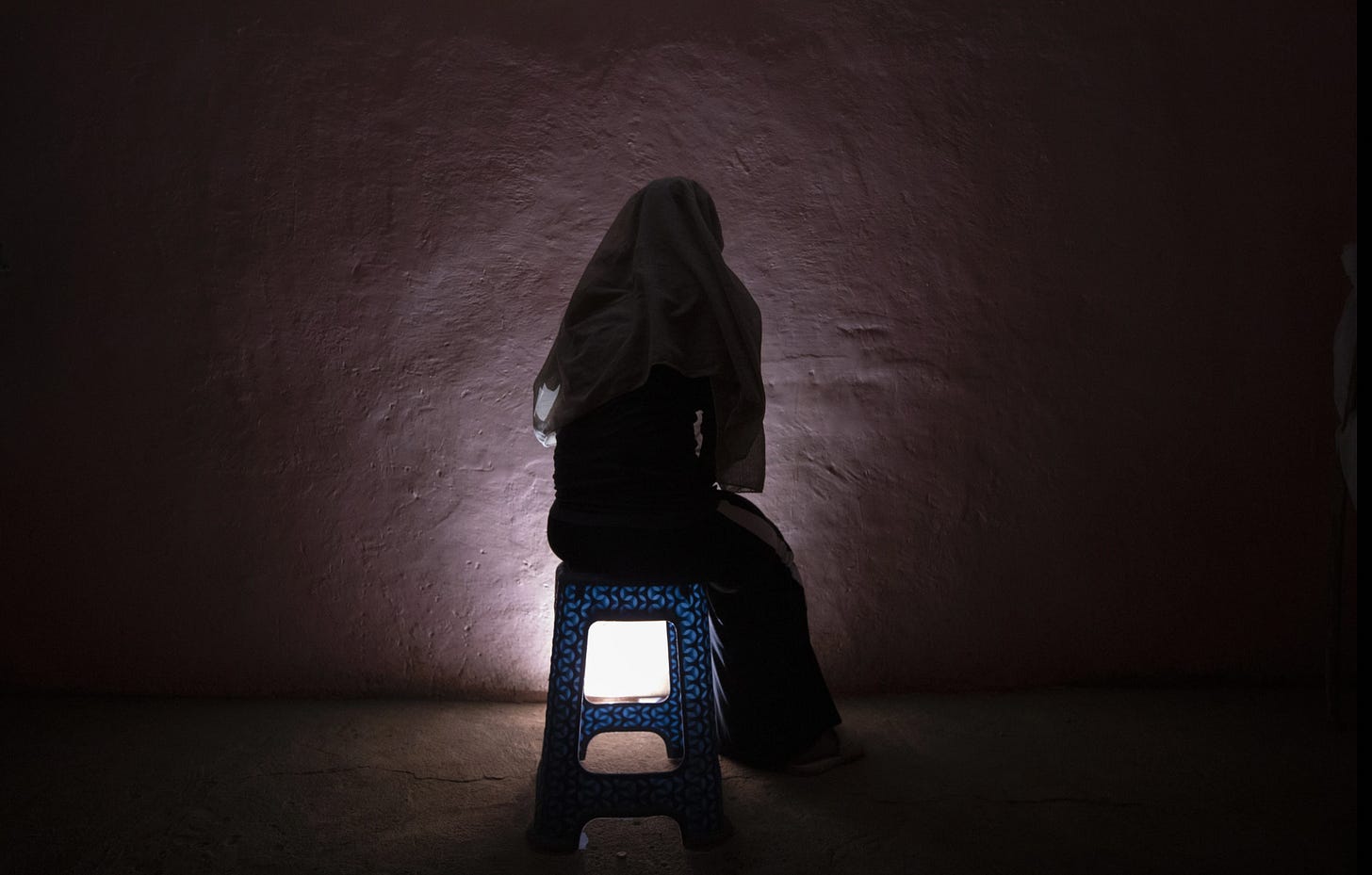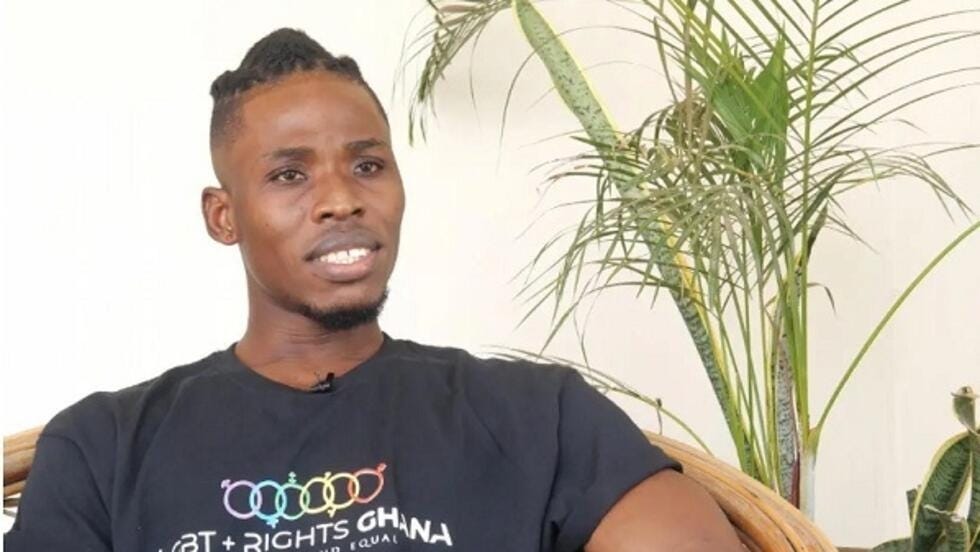Global Roundup: Ethiopia Survivors Study, Ghana Gay Rights Activists, Egypt HPV Awareness, Policy Reform for Trans Inmates, China Feminist Podcasts
Curated by FG Contributor Samiha Hossain
AP Photo/Nariman El-Mofty, File
CW: rape, sexual violence
Scores of women and girls in Ethiopia’s northern Tigray region were sexually assaulted, often by multiple men alleged to be combatants, after a peace agreement last year ended the conflict there, according to a new study of medical records released last week. The study by Physicians for Human Rights and the Organization for Justice and Accountability in the Horn of Africa, along with a commentary in The Lancet medical journal, looked at more than 300 randomly selected medical records from Tigray health centers focused on helping survivors of sexual violence.
The Tigray conflict killed hundreds of thousands of people and left untold thousands of women and girls with the trauma of sexual assault. At least 128 sexual assaults occurred after the peace agreement was signed last November, according to the study, which looked at records from the start of the conflict in November 2020 through June. With most health facilities destroyed or looted as Ethiopian forces battled Tigray fighters, many women and girls were left without treatment for months. Some now have HIV or are raising the children of their rapists. Others live with incontinence or chronic pain, along with the cultural stigma around such attacks.
It is just a “small glimpse” of the toll, the authors say, and they fear the chance for justice will be lost if independent accountability efforts by the United Nations and others are shut down.
All the community is a victim of sexual violence. Rape survivors, they are suffering the most. -Anonymous Tigray-based researcher
Almost all the women and girls said their attackers appeared to be members of a military group, often from neighboring Eritrea, whose soldiers fought alongside Ethiopian forces against Tigray fighters and allegedly remain in parts of western and northern Tigray. The findings suggest that “these acts were neither isolated nor random but a systematic use of rape as a weapon of war,” the study’s authors write in The Lancet commentary.
After a conflict marked by the blockade of the Tigray region of more than 5 million people, with internet and phone links severed and human rights researchers and journalists barred, the lack of independent inquiry means that the civilian toll could remain largely in the shadows as Ethiopia’s government moves on. Even now, the study says, survivors of sexual violence in Tigray are still coming forward, but others will never be known.
Alex Kofi Donkor, director of LGBT+ Rights Ghana. © LGBT+ Rights Ghana
The LGBTQ+ community in Ghana has expressed deep concerns over the potential dangers they may face if legislation enforcing so-called "proper human sexual rights'' is enacted. Ghana's anti-LGBTQ+ bill is undergoing parliamentary review. Its objectives include criminalising same-sex intercourse or public displays of affection, prohibiting the advocacy of LGBTQ+ rights, and banning trans healthcare.
Such actions will put the rights of LGBTQ+ people at risk. The bill is sensationalist and incredibly absurd for a 21st-century democratic country. The bill proposes to criminalise and imprison people simply for identifying as lesbian, gay, bisexual, transgender, transsexual, queer, questioning, an ally, asexual or pansexual. -Alex Kofi Donkor, LGBT+ Rights Ghana group
The bill, which has been under debate since August 2021, claims to protect "Ghanaian family values". But Kofi Donkor argues it is rooted in a colonial legacy that characterizes the LGBTQ+ community as “deviant” and “unnatural”. Homosexuality was first criminalised in Ghana under British colonial rule, then again after independence. Gay sex is already punishable by up to three years' imprisonment.
As the new bill approaches the final stage of parliamentary approval, Kofi Donkor shared that he has personally received death threats, and the community centre he established in January 2021 was forcibly closed by the police. The bill has the backing of most Ghanaian MPs, as well as religious and traditional leaders.
If the harsh anti-LGBTQ law currently being discussed in Ghana's parliament is ratified, myself and fellow group members could potentially face imprisonment for up to 15 years. -Alex Kofi Donkor
Two women walk by the corniche in Alexandria, Egypt, in September 2017.Mohamed Hossam/EPA-EFE/Shutterstock
Women activists and medical workers in Egypt say a problem that is overlooked in the country is the reluctance of many conservative doctors and parents to give the HPV vaccine to young girls. The problem, experts say, stems from a lack of awareness and understanding of the virus, as well as persistent social stigma about the disease being a sign of promiscuity among women.
A 50-year-old Egyptian mother was shocked when her gynecologist informed her that the growths around her exterior genitalia were caused by HPV. She was then referred for a test that would be able to detect any irregularities in her cervical cells. Luckily, no changes in those cells were found. The woman spoke to CNN on condition of anonymity, fearing ostracization from her community where the subject of sexually transmitted infections remains taboo. She said she had never heard of the virus before, but that regardless of how she contracted it, she believes that awareness and the vaccine are essential for young girls, including her own daughter.
The virus causes more than 95% of cervical cancers in women, according to the World Health Organization (WHO). Cervical cancer is the fourth most common type of cancer among women globally, says WHO, and in 2020 it killed some 342,000 women globally. About 90% of new cases and deaths that year occurred in low-income and middle-income countries, like Egypt. According to Lobna Darwish, gender and human rights officer at the Egyptian Initiative for Personal Rights (EIPR), very few countries in the Global South are doing routine HPV vaccines.
Activists and medical workers say that as well as a lack of awareness of the virus and social stigma around sex and sexually transmitted infections, poor advice from some clinicians and even the price of the vaccine may all be contributing to the crisis. It is common for medical professionals and ordinary people in Egypt to stigmatize people with HPV and other sexually transmitted infections, and believe they’ve strayed from religious and cultural norms.
Ola Arafa, a 26-year-old medical graduate from the Mansoura Manchester Medical Program at the University of Mansoura, has been working with her supervisor, gynecology professor Dr. Rafik Barakat, to study the prevalence of HPV in the northeastern city Mansoura and spread awareness among patients and doctors. Arafa conducted a survey in a number of outpatient clinics around the University of Mansoura, where she found that although more than half of participants had heard of cervical cancer, they did not know its relation to HPV, nor how to prevent it. Her findings only made her aim of raising awareness on the issue with “different ages and socioeconomic groups” all the more urgent.
[People tend to say] these things don’t happen in our community, we therefore don’t need the vaccine. -Ola Arafa
Makyyla Holland has won a settlement and policy reform after she was faced violence and abuse in the Broome County Jail. (NYCLU/YouTube)
A trans woman who experienced violence, discrimination and was denied medication while in custody in the United States has won a huge settlement and triggered policy reform for trans inmates. Makyyla Holland, 25, filed a lawsuit in 2022 against Broome County, New York, after she was the victim of physical abuse, misgendering and was refused her antidepressants and hormone therapy during a six-week jail stint in 2021. Holland said corrections officers discriminated against her based on the fact she is trans, subjected her to illegal strip searches, beat her and housed her with men, whilst she also faced abuse from fellow inmates.
As part of the settlement, Holland will receive $160,000 for the harm she endured at the Broome County Jail and the county will also adopt new policies affirming the rights of trans people who are held in custody.
This policy and policies like it can impact a lot of my community and I will continue to fight to ensure that no other trans person in New York or anywhere has to endure what I did. -Makyyla Holland
The new policy commitments will see the Broome County Jail ensure people’s names and pronouns are respected and trans inmates will be housed in units consistent with their gender. Additionally, trans people in the jail will have access to clothing and toiletry items consistent with their gender and be provided medical care free from discrimination.
Today’s settlement establishes a new policy standard to prevent future incidents of abuse and discrimination in our state and around the country. Thanks to Ms Holland’s courage and persistence, jails and prisons are on notice that they have an obligation to treat transgender people with dignity. -Bobby Hodgson, director of LGBTQ Rights Litigation at the New York Civil Liberties Union
Amid this win, nationwide attacks targeting transgender communities in the U.S. continue and trans activists continue to fight the prison industrial complex where LGBTQ+ and other marginalized communities are overrepresented in the system.
From left: Shiye Fu, Zhiqi Zhang, Jianguo Leng of Stochastic Volatility Podcast in 2022.. Courtesy Stochastic Volatility Podcast
Stochastic Volatility is the largest feminist-themed podcast in China hosted by Fu Shiye, Zhang Zhiqi, and Leng Jianguo. In one episode, the three women picked apart a question asked by prominent male political science professor, Liu Qing of East China Normal University: “In Taiwan, there’s a slogan, ‘I can look sensual, but you can’t harass me.’ That makes sense. But will what you wear increase your chance of being harassed?”
On the one hand, we know that he was so outdated on the information and the discussions surrounding these issues. But on the other hand, we felt that he was genuinely confused. He asked those questions in a very friendly tone. -Zhang Zhiqi
Together every week, Fu, Zhang, and Leng continue to host discussions like these on their podcast, which has around 600,000 regular listeners. They talk about things that are often considered taboo in Chinese society. One episode discusses egg freezing and fertility treatments, another discusses the sexualization of women’s clothing, while another episode talks about why some breast cancer survivors choose not to undergo breast reconstruction.
And they’re not the only podcast to do this. Over the past few years, podcasts have become a space where feminist-minded women in Chinese society can feel represented and discuss their frustrations with the patriarchy. The number of podcasts with feminist themes on China’s most popular audio streaming platforms rose from eight to 35 from 2019 to 2021, according to a study by Fan Yang, a lecturer at Hangzhou Normal University.
Podcasting has become especially popular among China’s intellectual elite, in part because looser censorship made it a better medium to discuss more controversial topics. The rise in the podcast movement also happened to coincide with a sudden surge of interest in feminism in the aftermath of China’s MeToo movement in 2017.
For Fu, Zhang, and Leng, the persisting gender inequalities in China motivate their podcast. They say that they take inspiration from the feminist movement in the West in their push for gender equality, but they sometimes find it difficult trying to apply these ideas to the Chinese context.
It used to be that most podcasts—all of them—were targeted for a male audience. I'm making this show for the girls. -Zhang Zhiqi
Samiha Hossain (she/her) is an aspiring urban planner studying at Toronto Metropolitan University. Throughout the years, she has worked in nonprofits with survivors of sexual violence and youth. Samiha firmly believes in the power of connecting with people and listening to their stories to create solidarity and heal as a community. She loves learning about the diverse forms of feminist resistance around the world.








